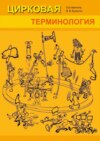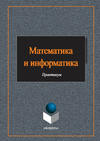Читать книгу: «Rich Man, Poor Man», страница 12
But had Bab looked back before it was too late she would have seen something that perhaps would have stilled the tempest of resentment, of bitter hurt, that raged within her. Varick still stood there in the road, the reins dangling from his hand, looking after her. Then, when he could no longer see the slim figure perched swaying in the high cart, his eyes dropped, and he stood on, his shoulders drooping, his hands thrust deep in his pockets. Forgotten, the thoroughbred once more fell to cropping the grass.
"Poor little girl!" whispered Varick. "My poor, poor little Bab!"
It was long after six when the cob, its flanks white with lather, came stepping swiftly up the drive to the portico at Byewolde. A groom from the stable was waiting. He gave one look at the horse, then glanced sideways at his mistress. Ordinarily she was not one to push an animal to its limit. But Bab gave no heed. Her bedroom was where she longed to be. Above all she wished to get there before any of the household should see her. The fates willed otherwise, it seemed.
"Begging pardon, please," said Crabbe as he opened the door for her; "Mrs. Lloyd will be in your sitting-room. She'll wish to see you."
Bab's heart clanged with sudden apprehension.
"Mrs. Lloyd?"
"Yes, miss; she's been waiting above an hour now. She said you were please to go to her immediately."
Bab slowly made her way up the stairs. It was the engagement, of course, that had brought Mrs. Lloyd hurrying to Byewolde. She had heard the announcement that afternoon. Bab opened the sitting-room door and stepped inside. Not above five minutes later the door again opened and Mrs. Lloyd emerged. She came quietly, discreetly, as if not to disturb others in that household. Her pale, usually expressionless face was lighted now with an ironic smile. She had just seen Bab. And, from A to izzard, she had divulged to her the story of Mr. Mapleson's forgery.
XXII
Dinner at Byewolde always was at eight; and downstairs in the big hall the corner clock sonorously boomed that hour. There followed a knock at the sitting-room door; and as she heard it Bab stirred restlessly. Listening, she held her breath. It was only Hibberd, however.
"Dinner is served, please. Thank you."
Bab made no reply. Waiting until she heard the manservant's footfalls retreat along the hall, she again returned to her hurried preparations. Mrs. Lloyd's interview had been brief – hurried, in fact. Her father and Miss Elvira were driving, she knew; but at any moment they might return. Consequently time was precious.
Once Bab had grasped all that her aunt's disclosures conveyed, Mrs. Lloyd's other remarks fell on her ears unheeded. Dazed, she sat staring in front of her. She awoke finally to the fact that Mrs. Lloyd was still addressing her.
"Under the circumstances," David's mother was saying, "we cannot sanction, of course, any further intimacy with our son." They had never sanctioned it, Bab told herself bitterly. "Do you understand?" continued Mrs. Lloyd; and at the same time she laid her hand on Bab's arm.
Bab shrank as if an iron had seared her.
"Don't touch me!" she whispered.
It was more than physical aversion that Mrs. Lloyd had instilled in Bab. She wondered how she could ever have planned so blandly to marry David in spite of his parents. Now, of course, it was quite out of the question. That Bab, as a Beeston and an heiress, should defy them was one thing; but it was quite another that Bab, the boarding-house waif, should attempt such a thing. Her end achieved, Mrs. Lloyd had not lingered. She departed conscious she had done her duty.
Bab, still half-dazed, sat on where her aunt had left her. She had no tears. The relief they would have afforded she was denied. Presently, however, the fire raging within her soul seemed to rouse her to a feverish animation. She felt she must do something! Below, under the portico, a grinding of wheels along the gravel of the driveway warned her that Beeston and Miss Elvira had returned. A glance at the mantel told her she had a little more than an hour to herself. Before dinner they would nap, then dress. She had until eight to make her preparations. After that there would be inquiries. She must hurry!
There was David, too. She had not seen him since early in the day; and he might come in at any moment. The thought of him was a swift reminder of something else.
Her fingers clumsy, she began fumbling at the bosom of her dress. David that morning had begged her to slip the ring, his diamond, on her finger. But Bab had shaken her head. There had been reasons in her mind even then why she had not cared to wear it before the people about her. Now, with fingers that were bungling in their haste, she dragged open the clasp of the chain. The gem, like a drop of dew, rested in her hand; but without a look at it she dropped it on a near-by table. There it lay, blazing star-like as the light fell upon it. What to do with it she would decide later. Meanwhile she hurried.
She was engrossed in her preparations when a footfall sounded suddenly in the hall. It was her maid, Mawson. As a precaution Bab had locked both the bedroom door and the door of the sitting-room adjoining. Having knocked, and Bab making no response, Mawson tried first one door, then the other. Her breath held, Bab stood in the middle of the room waiting. Mawson, she hoped, would depart. After a moment, however, the woman again tapped on the door. It was the hour when, every evening, she was required to help dress her young mistress for dinner.
"Half-past seven, please!" she called apologetically. It was evident that she thought Bab asleep.
Bab went to the door. She did not open it, for she did not wish Mawson to see within.
"I won't need you, Mawson," she directed.
The maid still remained.
"Shan't I lay out your things, miss?"
"Thank you, no," Bab returned.
Mawson went away after that; but her footfalls were slow and lagging, as though she were uncertain what to do. She was probably puzzling over the two locked doors. Bab, her ear to the door panel, waited until she had made sure of the woman's departure.
A glance at the clock caused her to start with apprehension. Half-past seven! Only half an hour was left her. If she hurried, however, in that half-hour she might accomplish much. With feverish animation she darted through the doorway that led to the sitting-room. There, standing on a chair, was a black leather traveling bag. With this she returned to the bedroom. Every drawer of her dressing table had been pulled out. Scattered on the bed was a haphazard assortment of the things she had selected from the dressing table's contents.
Bab was going away. In a few minutes now she would have turned her back on that house for good. Her dream, like the thin veiling of a cloud, had dissipated, vanishing into the thinness of the air! As her fingers picked swiftly among the things spread out before her, Bab glanced again at the clock. Twenty minutes now! In twenty minutes everything would be ended.
To leave this place at once had been her first impulse the instant she had come to her wits again after Mrs. Lloyd's departure. She did not quibble. She had perhaps backed and filled, been uncertain and weak over the other problems that had confronted her; in this, though, she had clearly seen the way. Now that she knew the truth about herself, there was no question in her mind as to what she should do. She had loved her new home. She had loved, too, the life, the surroundings that went with it. But, much as it allured her, she meant to pay for it no such price as would now be necessary. Mrs. Lloyd had not deceived her. Bab knew she need only appeal to David to remain there, fixed indefinitely among those surroundings. But she wanted the real thing, or else nothing. Her one thought now was to get away. She had not begun yet to think of the future.
All at once out in the hall she heard a sound. Bab caught at her breath. Along the corridor, straight toward her door, came the measured slow tread now so familiar to her. There followed a knock on her door. She did not answer. Outside she could hear David as he propped himself on his crutches.
"Bab," he called. She still did not answer. "Bab!" he called again.
In the tense stillness of the room the thick, hurried ticking of the clock upon the mantel beat on her ears like sledge strokes. She did not move. She dared hardly breathe. Beside the door she could hear him as he moved restlessly, one hand on the panels to support him. Then through the woodwork came to her a sigh – a deep and painful inspiration.
"David," she said. "Oh, don't!"
A stifled exclamation came from the hall without. Bab, however, did not open the door.
"Let me in," pleaded David. His voice, in its thickness, she hardly knew. As he spoke he rattled the doorknob.
"You can't come in," Bab said wearily. "I can't see you."
He was silent for a moment. She could hear him move again, shifting on his crutches.
"Where have you been, Bab? All the afternoon I've been hunting you. I tried to get to you first."
To get to her first? She knew at once what he meant.
"You've seen your mother then?"
"Yes, Bab." His voice was toneless, its depth of weariedness abysmal. After another pause, while apparently he waited for her reply, David spoke again: "Bab, it makes no difference to me. The other day when I told you nothing would, I meant it. Open the door, won't you?"
As gently as she could Bab answered him:
"I can't, David – not now. I'll let you know when I can."
Over her shoulder she threw a swift glance at the clock. Ten minutes to eight. At eight Beeston, as was his wont, would come stamping down the stair. It was he whom she dreaded meeting. Now that she realized he knew everything, she dared not face him.
"You're not coming down then?" David finally asked.
Go down to dinner and face again that grim, indomitable figure at the head of the table? Bab quailed at the thought.
"No. And you must go now, please," she said.
"Can't I see you just a moment?" he begged.
"Not tonight," Bab answered. There was a moment's silence, then she heard David heavily and painfully plod his way along the hall, and the thump! thump! of his crutches finally died away. When she turned from the door Bab's eyes were filled with tears. Even David had left her now.
Five minutes more! At half-past eight, only a short half-hour now, the train for the city would leave Eastbourne, and after that there would be no train until well along toward midnight. The station was a mile away. She remembered, too, she would have her bag to carry. She must hurry.
She had no plans further than that she would go to New York. Mrs. Tilney's, however, was not her destination. She could never return to the boarding house so long as Varick was there.
To him she had so far hardly given a thought, but now she wondered vaguely whether he had known of the fraud all along. Probably he had. The significance of this, however, she did not debate. To her dazed mind it seemed long ages since she had met him in the wood, and she herself must have grown years older and wiser since then. All at once she was overwhelmed by a terrible loneliness. If she only had someone to whom she could appeal! If even Mr. Mapy were only with her!
At first Bab had thought that she never again would care to see the little man, that the bitter memory of what his act had cost her would remain between them always. Now she no longer felt that way. Her mind in its loneliness dwelt on the fact of how Mr. Mapy had loved her. It was this love after all that had led him to attempt that ridiculous fraud. And at the thought of the sorrowful, solitary little man, a sudden longing filled her to see him again. She would go to him, and perhaps in some new place they might begin life over again happily.
A startled exclamation here escaped Bab. A glance at the clock had shown her it wanted only a minute or two of eight. Spurred now to a new activity, she began tumbling into the bag the last of the things she had laid out on the bed. She could take little with her, of course; she saw that. The door of the closet near-by stood open and showed long rows of dresses – all the daintiest, the most costly. There were on the floor of the closet, too, double rows of little boots and shoes, and in the highboy against the wall were gloves, silk stockings, ribbons, scarfs. She must leave all these behind her. Only the smallest, the most personal, of belongings she was taking along. She did not own the others. They had been given to Barbara Beeston, the heiress – not to Bab, the boarding-house waif. With a wistful, brave little smile she was bending over to sort out a few handkerchiefs to take with her when out from among them fell a small morocco case. It was Beeston's pearl! The gem lay in its velvet bed gleaming up at her like a conjuring eye. In its exquisite beauty it seemed to symbolize all the refinement of that life of wealth and splendor she was now renouncing. For the first time she really grasped what she was giving up.
Just then the mantle clock struck eight. As the chime's silvery notes cried the hour a step on the stair again startled Bab. She paused, once more breathless. It was only Hibberd, however.
"Dinner is served, please. Thank you," said the servant.
Bab did not answer. Presently, the man's footfalls having died away, she turned back again to her packing. Nothing of all these things round her was hers. She could not lay claim even to the clothes she stood in. What she took, therefore, must be such things as afterward she would be able to replace. She had a grim satisfaction in this. A minute or so later Bab stealthily unlocked the bedroom door and stepped out into the hall.
The house was silent. The Beestons, brother and sister, either had not yet come down or were already in the dining-room. It seemed to Bab she heard remotely in that stillness a sustained murmur of voices. It was as if somewhere behind the closed doors of that house someone spoke, his speech broken and disjointed. But the important thing for the moment was that the way was clear. One last swift look Bab threw about her; then, her hand on the rail, she darted swiftly, silently, down the stairway. A moment later she had almost reached the door.
"Where are you going?" asked a voice.
It was Beeston. He had been sitting there all the time on watch. As Bab, a gasp escaping her, shrank back guiltily, the man's gnarled hands tightened themselves on the arms of the chair in which he sat, and he lurched heavily to his feet. She had never seen his face so menacing. His brows twitched as he gleamed at her from under them, and she saw his jaws work dryly together. His voice had not raised itself when he spoke, but low, restrained, it rang like a trumpet.
"Going, were you – running away! Is that it?" A mirthless laugh, a sneer, left him. "Well, you're not going!"
His stick thumping the hardwood floor like a pavior's maul, he hobbled swiftly toward the door. Then, when he had interposed himself between it and Bab, he halted. His face, she saw, had no kindliness for her, but in it, instead, was a look of fierce determination – the will of a remorseless, masterful man.
"I've heard what happened this evening," he snarled as Bab stared at him in silence. "I learned it a while ago. The business got away from me. That fellow Lloyd, my son-in-law, I warned long ago not to interfere with you; but I didn't think my daughter would dare oppose me. Never mind about that! What do I care who you are? You could be a drab out of the gutter for all I'm concerned. There's only one person in the world I care about – that's David! What he wants I want. That's what I'm here for; that's what my money's for! Listen, my girl; David wants you! D'ye hear me? It's you he wants and you he's going to have! You're going to marry him – do you understand?"
He had drawn close to her, his murky eyes staring into the depths of hers, and Bab felt herself grow cold. But she did not give in. Now that she had made up her mind, in her resolution she might indeed have been a Beeston.
"No, I can't do that," she said.
Beeston threw her a thunderous look.
"What's that you say?"
"I said I couldn't marry him."
Again the fire flamed in his eyes.
"We'll see about that – can't, eh? Who says you can't?"
"I shall never marry him," she said doggedly. "Never!"
She saw then, as in a dream, the man's huge face draw near to hers, and his eyes, fastened on hers, narrowed each to a pinpoint of light, like sparks glowing among the dead gray embers of a hearth.
"Oh, that's it, is it?" he sneered, mocking her. "You're not going to marry him, eh? Do you think I'd have kept you here, a fraud like you, if I hadn't meant you should? I knew what you were long ago. I knew, too, that David loved you. That's why I didn't turn you into the street. Now listen! You know the man that did this forgery – that fellow Mapleson. He's been like a father to you, hasn't he?"
"Yes, he's been a father to me," Bab answered. "Why do you wish to know?"
"You think a heap of him, too, I shouldn't wonder?" Beeston continued, ignoring her question. "Come, speak up now; isn't that so?" As Bab nodded her assent a gleam of satisfaction leaped again into the old man's eyes.
"All right!" he growled. "That's what I wanted to know!" He bent nearer, his expression grim but triumphant. "You take your choice now, young woman! Marry David, or if you don't I'll put that fellow Mapleson in jail! Now make up your mind, my girl. I'll give you five minutes to decide."
XXIII
Dinner at Mrs. Tilney's was at half-past six. At half-past seven the last of the guests would be served and Lena, the waitress, slipslopping wearily from pantry to dining-room, would begin clearing away for the night. The clatter of dishes precariously piled upon her tray was an intimation to those who lingered that they had better hurry.
On a Monday night, a week after his visit to the Blairs' summer place at Eastbourne, half-past seven was striking when Varick pushed back his chair from the table and arose. Only Miss Hultz, the Jessups, and Mr. Backus, the Wall Street gentleman, remained. The others, having finished, had sought either the parlor or Mrs. Tilney's front steps. Miss Hultz arose with Varick. She and Mr. Backus planned that evening to take in a moving-picture show near-by on Eighth Avenue.
The lady from Bimberg's wore a smartly cut polka-dotted voile that set off well her abundant charms. Delicately brushing the crumbs from her lap, she bestowed on Varick a flashing smile.
"I fancy we won't see much of you any more, Mr. V. Sorry to hear you're leaving us."
Varick looked astonished.
"I?"
"Why, yes," returned Miss Hultz, puzzled; "I heard you'd been promoted at the bank."
Varick had indeed again been promoted, the bank having made him assistant cashier of its uptown branch; but, as he explained to Miss Hultz, that didn't mean he was leaving Mrs. Tilney's.
"Well, it'd mean it with me," she rejoined with conviction. "I ain't saying anything against Mrs. Tilney's, of course; only you know" – a sapient smile accompanied this – "socially, boarding ain't to my idea. Give me something select – an apartment hotel, say; or, if you'd be real swagger, Riverside Drive with your own bath and kitchenette. I always wanted to be a bachelor girl," Miss Hultz concluded.
Varick agreed with her. Nothing, he assured her, could be sweller. Miss Hultz, having gathered up her key, her handkerchief, her handbag and her evening newspaper, favored him with another flashing smile, then departed.
"The tray's ready, Mr. Varick," called Lena from the pantry door.
Varick thanked her, and was starting toward the pantry when Jessup, rising from his chair, touched him on the arm.
"How's the patient?" asked the bookkeeper. "Mapleson any better?"
Varick shook his head. Mr. Mapleson, he said, was still in bed. For a week now the little man had kept to his room. Either Lena or Mrs. Tilney carried up his meals during the day, and at night Varick volunteered. They none of them knew just what was wrong with Mr. Mapleson. He had refused to let a doctor see him.
Jessup frowned gravely.
"Any news?" he asked guardedly.
Guessing what he meant, Varick shook his head. Jessup ruminated. Since that night, now months ago, when he had divulged to Varick Mr. Mapleson's history, the bookkeeper had felt thoroughly uncomfortable about it. Never in his life had he willingly harmed a fellow-creature; and with a deep human understanding of the circumstances he pitied Mr. Mapleson with all his heart. It was for Bab, not for himself, Jessup knew, that the little man had done what he had. And for that very reason, too, Bab now was on the bookkeeper's mind.
"She hasn't been here then?" he asked.
"No," returned Varick, "not yet."
Jessup, grunting, said no more. It was evident, though, that he had his own opinion of Bab. Hardly a flattering one apparently.
Varick, taking the tray from Lena, climbed the stairs to Mrs. Tilney's top floor. In the week that had passed since the afternoon when he had met Bab in the road at Eastbourne he had not seen her again, nor had he heard from her. But Mr. Mapleson had. The day Varick returned from Long Island a letter had come to him. It was after that that Mr. Mapleson had taken to his bed. It was a brief note, but brief though it was it had seemed to stun Mr. Mapleson. Even Varick had been dismayed.
"Good-by," Bab had written. "They tell me I must never see you again. I know everything and I forgive you. Good-by."
That same morning, on his way downtown in the subway, Varick had read in his paper an announcement that to him seemed to make everything clear.
The wedding of Miss Barbara Beeston and David Lloyd, it is announced, will take place at noon, June the twelfth, at Byewolde, the Beeston estate, Eastbourne, Long Island. Miss Beeston is a granddaughter of Peter Beeston, the financier. She and Mr. Lloyd are cousins. Only members of the immediate families will be present.
So she had taken him after all! All the days and the days that followed, through every moment of the passing hours, Varick had debated the matter. He was still debating it as he tapped on Mr. Mapleson's door. Bab had taken his advice, that was evident – his suggestion that she must decide for herself. But that she had not taken it in the way he hoped she would, Varick's air made evident. He did not blame her. He would not let himself even criticize what she had done. But he was disappointed bitterly – disappointed and surprised at the choice she had made.
Rich man, poor man,
Beggar man, thief;
Doctor, lawyer,
Merchant, chief!
Rich man the buttons had counted, that was all! At any rate, so Varick thought.
Mr. Mapy never had looked more frail, more fragile than he did now lying in the white enameled iron bed on which for seventeen years he had slept. His eyes, deep sunk within their sockets, were bright with an unwonted fire; his face was drawn and peaked. So gaunt were his features and waxy white that, as he lay among the pillows, he had the semblance of a ghost. At Varick's entrance he looked up expectantly. The morning newspaper lay upon his bed. As Varick saw, it was opened at the page devoted to social news. Mr. Mapleson was twittering with excitement.
"Have you seen this?" he piped.
Varick set down the tray. In response to Mr. Mapleson's remark he nodded.
"She is to be married Wednesday," the little man cried, drawing in a sudden breath; "my little Bab's to be married!" Then, as if at a sudden thought, he propped himself up among the pillows. The exertion, slight as it was, had obviously tried his strength, and for a moment he could not speak. "I see it now," he cried when he caught his breath again. "That's why they kept her, isn't it? They wanted her to marry Lloyd!"
Varick smiled.
"Oh, yes," he answered dryly, "that was why."
Mr. Mapleson seemed overwhelmed.
"Does she love him?" he exclaimed.
Varick busied himself with rearranging the dishes on the tray. Love David Lloyd? What had that to do with it? Wasn't she marrying him? He did not say this, however, to Mr. Mapleson. He did not say anything, in fact. But Mr. Mapleson was too occupied with his own thoughts to notice this.
"She'll be happy, don't you think?" he chirped.
"Happy?" echoed Varick.
"Why, you think so, don't you?" cried Mr. Mapleson, alarm in his voice. "Why shouldn't she be happy?"
A faint color mounted into his peaked face. It was evident that a rising excitement fired the little man. Oblivious of how all this must hurt Varick, the man Bab once had loved, Mr. Mapleson gave vent to a sudden chuckle.
"Never mind the tray; I can't eat anything," he said feverishly; then he darted a glance at Varick. "Say!" he cried, his eyes unnaturally bright. "They won't turn her out now; they won't turn her out at all! Yes, and that ain't all either! If she marries that fellow she'll still have all that money! It's great, ain't it? Just think of it – she's going to have everything after all!"
Then with a deep sigh, his face radiant with a smile, he lay back among the pillows, his eyes closed. After an interval he spoke again.
"Well," he said, "even if I can't see her again, I'm happy, happy!" A long while afterward he spoke again.
"I'm happy," he whispered; "very happy!"
Late that night Varick came down the stairs and tapped at the door of Mrs. Tilney's bedroom. She arose hurriedly and, donning a dressing gown, went to open the door. Varick had his hat in his hand.
"We'll have to have a doctor, and a nurse too – I'll pay for them," he said. "Mr Mapleson's very ill, I'm afraid. And Mrs, Tilney," he added awkwardly, "send word to Bab again, won't you? Maybe she'll come if she knows how ill he is."
Покупайте книги и получайте бонусы в Литрес, Читай-городе и Буквоеде.
Участвовать в бонусной программе










